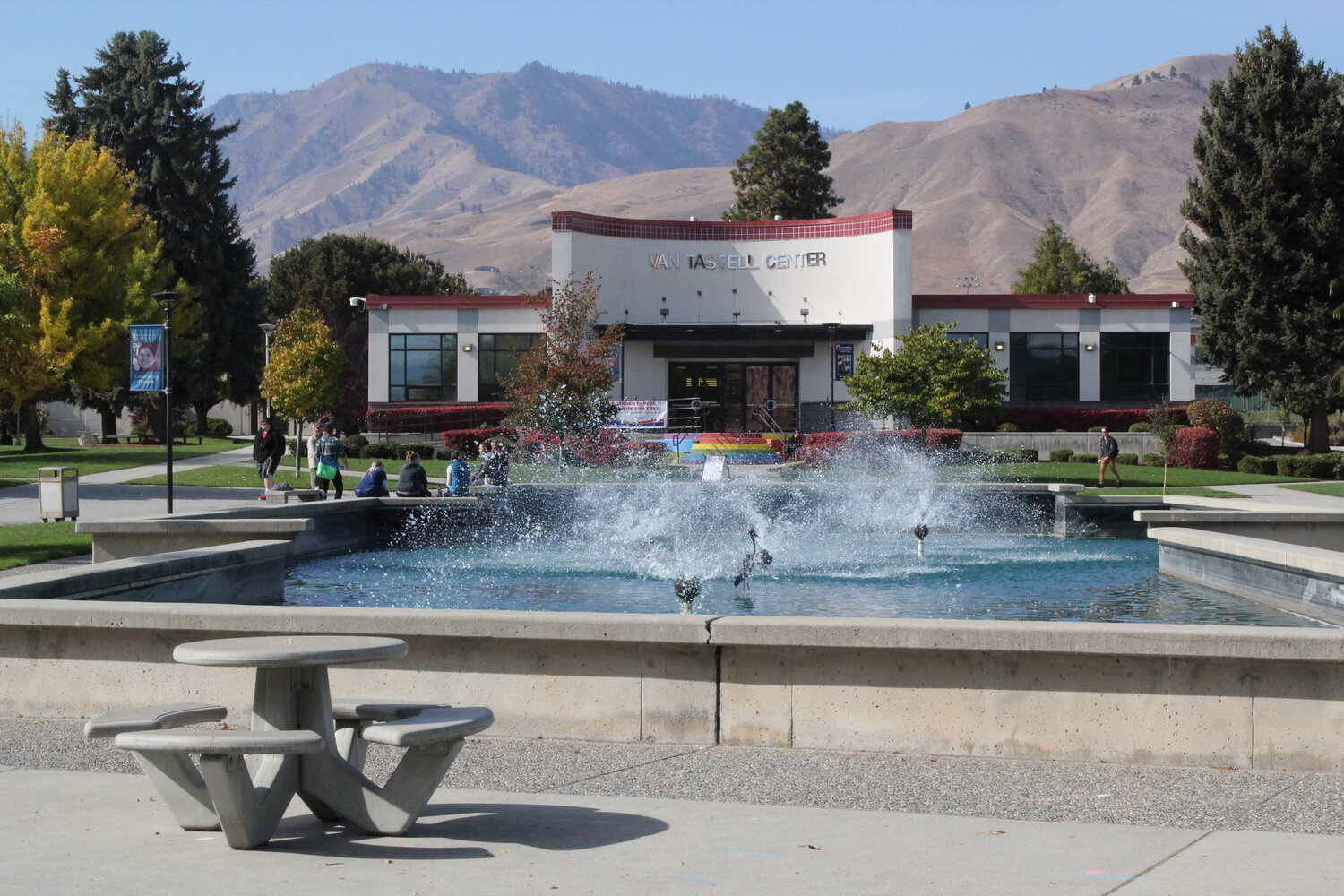
WENATCHEE—Wenatchee Valley College is developing a new strategic plan to enhance its community focus, address equity gaps, and maintain academic excellence.
WVC President Dr. Faimous Harrison seeks to develop a growth mindset and continuous improvement framework for the college.
He envisions WVC evolving into a stronger regional anchor, a key economic driver, and a student-centered, community-engaged college.
"So with that, one of our objectives right now, we're in the process of working through a new strategic plan, and how we are repositioning the colleges instead of the brick and mortar of higher education right, the brick and mortar campuses, what we realize is that the college is our community," he said.
"So clearly, it's not to say that we're not student-centered," he said. "What it means is where do our students come from, our students come from the community. So we need to shift our lens to be, how are we more intentional in trying to meet students, meet their community where they are and really understanding the role that the college can play moving forward."
As part of developing the new strategic plan, WVC is conducting an in-depth environmental scan and cross-referencing with other area strategic plans to identify gaps and needs within the region.
The college is working with regional organizations and has partnered with an outside consultant to collect the data needed for the plan. Harrison said that data will be the guiding force for decisions.
Harrison plans to engage stakeholders more intentionally by developing programs, training, and degrees that meet high demand and support local businesses.
These initiatives present numerous exciting opportunities for growth and collaboration, he said.
Harrison views the college as part of a broader ecosystem, reflecting the community's health and inspiring a shift in mindset to think of its responsibility of extending from cradle to grave.
This mindset contrasts with traditional liberal arts by emphasizing technology, competing priorities, and supporting first-generation English as a second language individuals.
Many students have competing priorities, whether it's family, children, or multiple jobs, he said.
The strategic plan will examine how WVC works with stakeholders, residents, industries, and the community and how to meet them where they are.
"How do we become intentional and how do we support that seamless pathway, whether it's credentials, whether it's supporting businesses, ensuring that they have the employee with the skill sets that are needed to or for them to maintain their businesses as well as reach their potential and goal," he said. "So that's one of our roles as a public entity, that collective impact is critically important."
Another main focus of the new strategic plan is disaggregating data and looking at equity gaps.
"So when you think about rural communities, when you think about zip codes, when you think about students, you know, from different backgrounds, when you think about different challenges, I mean, there's so many different layers that we need to be intentional for," he said. "So when you look at that type of data then you can be very prescriptive and strategic in identifying what resources and support that's needed."
WVC serves a large territory with over 10,000 square miles.
"One of the challenges, though, is, as you know, we're the only education institution for such a large area," Harrison said. "So we have to really be strategic in looking at partnerships."
"When you think of rural communities, underrepresented areas, when you think of resources on the west side of the state versus the east side of the state, there's a challenge there," Harrison said.
"So usually in Washington state, what do we always hear?" he said. "We always hear Olympia, we always hear Seattle, right? We very rarely see, you know, east of the mountains as the focal point, right? So how do we change that narrative? How do we become intentional? You do that within a collective impact framework? So we're starting that work."
Rural communities face numerous challenges, including limited resources. However, NCW has seen growth, so Harrison sees it as vitally important to support local industries, businesses, and the people who live here. One of the key questions the plan will focus on is how to effectively support the local ecosystem.
Because the school serves such a large area, the environmental scan is critical to understanding the diverse needs of different NCW communities. For example, Wenatchee, Chelan, Omak, and Nespelem are all different communities with different needs that the college serves.
"So it's not a cookie cutter approach that one size fits all," he said. "We have to be intentional in our efforts of supporting our students, supporting families, supporting the communities and supporting our region, and that's a different lens."
Quinn Propst: 509-731-3590 or quinn@ward.media.
Comments
No comments on this item Please log in to comment by clicking here